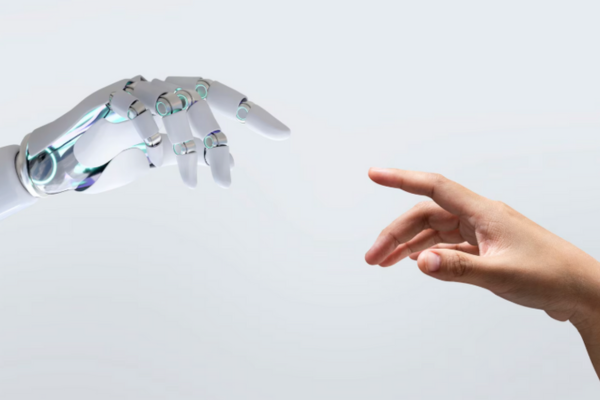Discover the 7 technological innovations for 2026 that will transform the market: from artificial intelligence to cybersecurity, smart payments, 6G and green technology - the future is closer than you think.
2026 is just around the corner and promises to bring with it a whole bag of new features not only for consumers, but also for companies.
From payments to online security, many areas are set to receive major technological innovations that will shape the future in the short to medium term.
From all of them, we ended up choosing 7 that, because of their relevance and ability to change the daily lives of consumers and businesses, deserve to be highlighted. Shall we get to know them?

1. Agent Pay: smarter payments
2026 will open with a major innovation in the area of payments: the Agent Pay.
In practice, the Agent Pay is part of the so-called "Agency Payments Programme" and integrates with agency artificial intelligence (AI) to revolutionise payments in physical shops.
In this sense, this solution will offer consumers, businesses and payment issuers Mastercard Agentic Tokens, which in turn base their operations on tokenisation resources such as mobile payments and contactless.
In addition to partnerships with Microsoft and IBM to accelerate the introduction of smart payment programmes in the B2B domain, the Mastercard will work with acquirers and checkout specialists to improve tokenisation capabilities for merchantsto offer secure, fast and transparent agency payments.
In short, the Agent Pay will perfect generative AI in the relationship between customers and merchantshelping to integrate reliable and frictionless payment experiences.
For example, if someone is going to a wedding and needs to buy clothes or accessories, all they have to do is chat to an AI agent and they can select a range of clothes from local and online shops based on their style and preferences.
From here, the AI agent will make the purchase and recommend the best way to pay.
In this way By identifying and validating a customer using Mastercard's tokenisation technology, a merchant will be able to offer its customers a better and more consistent shopping experience, adding personalised benefits and services such as payment methods, free deliveries or rewards and discounts.
2. Generative AI: a step towards the future
It's unavoidable: the artificial intelligence is the big trend of the moment and that's clear from number two on our list.
In the year ahead, we will see the large-scale development of so-called generative AI, which will help businesses make more assertive decisions with a lower error rate.
Through autonomous algorithms trained by machine learning (ML) to learn continuously, the Generative AI will create code, physical products and content based on defined parameterssomething that will accelerate the developing customised solutions for companies and clientsas well as helping organisations to reduce operating costs.
For traders and other business agents, this will mean that they will be able to automate complex tasks, generate more accurate and up-to-date insights in real time and improve support and customer service.
3. Greater connectivity and integration with the Internet of Things and 6G
Just when we're getting used to the virtues and potential of 5G, 2026 opens the door to 6G and the possibility of an Internet of Things (IoT). Internet of Things) more capable and safer.
With 6G, latency will be ultra-low and you'll have more bandwidth, which will allow you to, among other things, make the most of your time. real-time machine operation and large-scale sensor integration.
The integration of IoT and 6G will benefit sectors such as logistics or health tremendously, since, for example, a healthcare facilities will be able to implement hospital treatments at home more easily, using real-time patient data monitoring to do so.
4. Cybersecurity: an indispensable pillar in a deeply digital society

Taking advantage of the expansion of the IoT and the development of 6G and generative AI, the data security in digital environments will benefitsince, with the appearance of cyber threats more sophisticated (automated attacks or ransomware, for example), it will be possible to respond to cyberattacks in real time.
Because it's more than just a matter of choice, it's a matter of survival (at a time when e-commerce is booming in Portugal). The integration of these new technologies in the fight against online threats should be part of a 360º security approach that is not restricted to the design of websites, the implementation of access policies or the training of a company's employees..
In addition to these, this cybersecurity strategy must also take the form of a clear investment in secure means of payment and adapted to the digital ecosystem and advanced monitoring systems capable of continuous threat tracking.
5. Immersive experiences in a corporate environment using AR, VR and Metaverse
With the development and launch of more up-to-date and improved versions of the AR (augmented reality), VR (virtual reality) and the Metaverse (interconnected virtual environments) by 2026The corporate environment is going to change profoundly.
With the integration of these technologies and the practical applications that result from them, it will be easier for companies, for example, to create interactive virtual shops, hold meetings in 3D spaces and even offer their customers richer, more personalised consumer experiences.
In addition, working together, the AR and VR could also improve efficiency by allowing repair technicians to receive overlapping instructions regarding the machine or equipment they are repairing.
6. Quantum computing with a commercial horizon
A quantum computing is not exactly new, as it has been the subject of research and development for many decades in order to give it a more practical aspect.
This could be reserved for 2026, as it is expected that the companies take advantage of the latest developments in quantum computing to optimise, model and analyse complex data using quantum algorithms.
For example, in the area of logistics, these algorithms are prepared to save time and fuel when distributing products by calculating more efficient routes.
7. Greater sustainability with the help of green technology

Driven by AI-based solutions, the green technology will help companies optimise energy consumption and reduce waste rates on the shop floor, in the warehouse and even in the office.
In the case of product development, this technological innovation will serve to create more sustainable materials and products and reduce the pollution generated through the introduction of carbon capture solutions and the use of intelligent materialsas an example.
On top of all this, the companies will also be able to leverage their reputation among consumers who are increasingly aware of the environmental and climate challenges and reduce operating costs.


